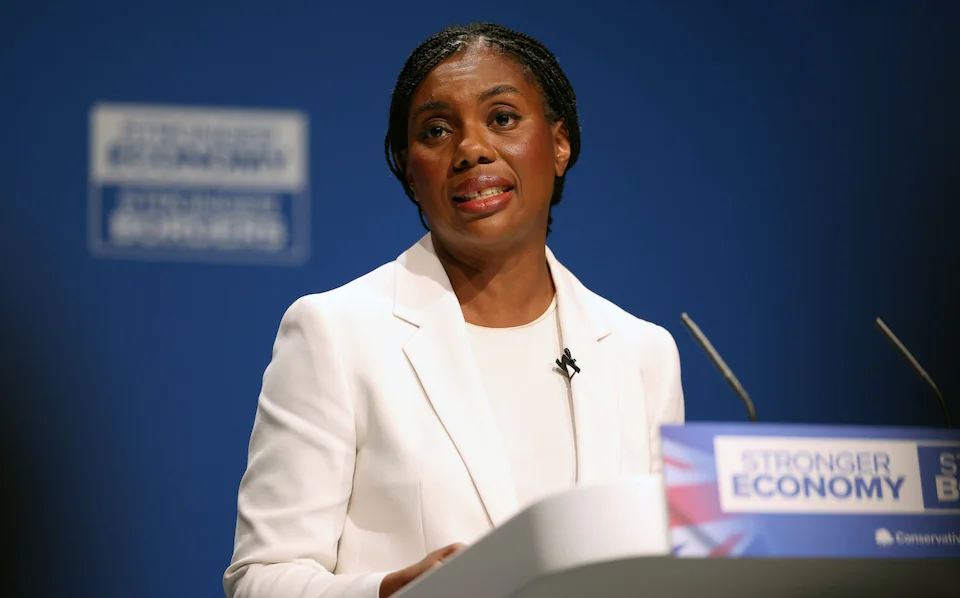British Conservative Party leader Kemi Badenoch has pledged to abolish stamp duty on primary residences, in what she describes as a bold step toward restoring the dream of home ownership for millions of Britons.
Addressing delegates at the Conservative Party Conference, Badenoch said the tax, which is paid when buying property, has become a major obstacle for first-time buyers and young families. Her remarks drew a standing ovation from party members, signalling strong grassroots support for what could become one of the defining policies of her leadership.
“We Conservatives believe that owning your home gives you a real stake in society,” she told the cheering crowd. “There is a big barrier in the way, and that barrier is the tax you have to pay when you buy your own home. That barrier is stamp duty. Stamp duty is a bad tax; it is an un-Conservative tax. The next Conservative government will abolish stamp duty on your home.”
Aiming to Remove Barriers to Home Ownership
Stamp duty, officially known as the Stamp Duty Land Tax, applies to property purchases in England and Northern Ireland and is charged in tiered bands based on a property’s value. In the 2023–2024 fiscal year, it generated £11.6 billion for the government—nearly £4 billion less than the previous year due to slowing sales and high mortgage costs.
Read Also :
Kemi Badenoch expected to unveil plan to exit ECHR
Kemi brings little cheer to toxic Tories bracing for tough local elections
Badenoch said abolishing the levy outright, rather than merely reducing it, would make a real difference for aspiring homeowners. She emphasized that the plan is “fully costed” and backed by a comprehensive £47 billion savings package developed by her shadow cabinet.
Under her proposed “golden rule”, half of the government’s savings would be used to reduce Britain’s national deficit, while the remaining half would be invested to stimulate economic growth. Nearly half of the projected savings, Badenoch explained, would come from welfare reforms, with the rest achieved through efficiency measures in public spending.
Her approach reflects a deliberate effort to balance fiscal responsibility with economic opportunity, marking a contrast to past Conservative leadership strategies.
A Shift from the Truss Era
Political analysts note that Badenoch’s plan represents a significant break from the policies of former Prime Minister Liz Truss, whose 2022 mini-Budget proposed unfunded tax cuts that destabilized markets and led to her resignation after just 49 days in office. Badenoch’s tone of caution and discipline appears designed to reassure voters that the Conservative Party has learned from that experience.
Beyond economic reform, Badenoch used her speech to articulate a broader vision of national renewal rooted in security, opportunity, and dignity.
“I stand for stronger borders and a stronger economy so that the young can fulfil their potential, the old can live out their years in dignity, and everyone can achieve their dreams—to own a home, run a business, raise a family,” she said. “This is the Britain I stand for. If this is the Britain you stand for, then stand with me and let’s build it, together.”
Her message resonated strongly with delegates, who applauded repeatedly throughout the address.
Analysts React
Economists and political observers say the proposal could be one of the most significant housing reforms in decades. If implemented, it could lower barriers to entry for first-time buyers, boost the property market, and rebrand the Conservatives as the “party of ownership and opportunity.”
However, critics caution that abolishing stamp duty would reduce government revenue, potentially creating funding gaps in public services unless matched by new income streams.
Kemi Badenoch’s pledge to abolish stamp duty marks a decisive moment in British politics—an attempt to restore the Conservative Party’s economic credibility and reconnect with a generation locked out of home ownership. Her message of responsibility, stability, and aspiration may well shape the political debate in the months leading up to the next general election.
For millions of Britons who have long viewed home ownership as out of reach, Badenoch’s promise offers more than a tax cut—it offers renewed hope in the British dream.



